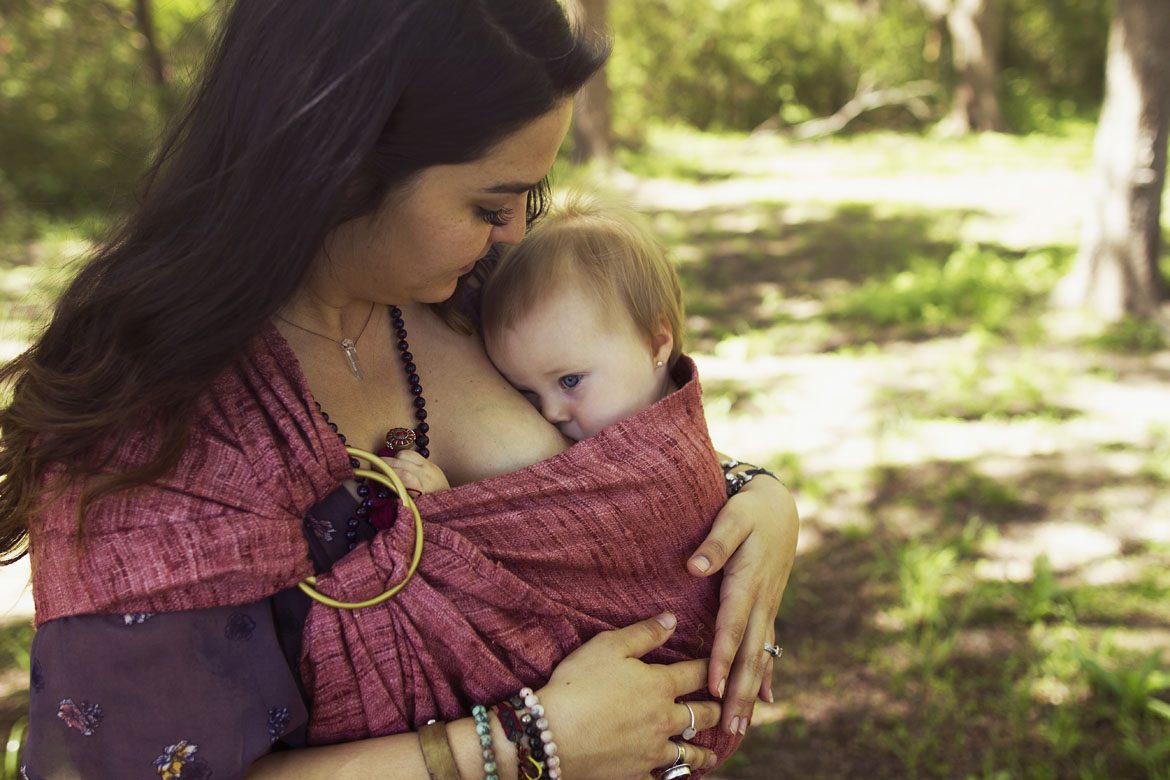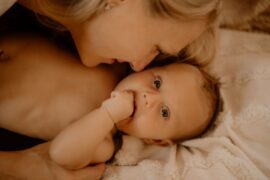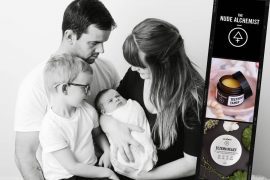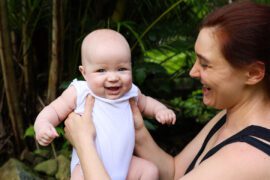By Katesurfs
When I was pregnant with my first child, one of my biggest hesitations about becoming a new parent, was the thought of changing countless dirty diapers and of toilet training. I often wondered if there was a more natural process. I wondered what ancient people would have done! Luckily, just a few weeks before my daughter was born, a lady told me about elimination communication (EC). A lightbulb went off after our brief conversation and I knew that elimination communication was something that I wanted to try. I’ve practiced EC with both of my children and they were both and toilet trained, day and night, right around the time they started to walk.
Elimination Communication (EC) is simply responding to the elimination needs of your child. In other words, taking a child to a designated place to relieve themselves, other than in a diaper, when they have to go. Ancient people practiced EC and possibly even your grandmother did it to save on washing cloth diapers. Also, women today, in developing countries, where no diapers are available, would practice EC, out of necessity.
While practicing EC may lend itself to early toilet training, the ultimate goal of EC is not just about the end result. Responding to a child’s elimination needs is about opening a two way communication pathway between a care giver and a child, long before that child can speak. Newborns, infants and toddlers develop extremely quickly, so the communication pattern between the carer and their child changes rapidly. Parents can easily learn to respond to their child’s changing communication by observing the child and watching or listening for cues. Similarly, the child learns that his or her elimination needs will be met by a trusted adult carer.
Familiarising a child from an early age with normal bodily functions, like urination and defecation, can lead to more heighten body awareness and more confidence. EC can be practiced ‘part time’, meaning that the baby wears diapers sometimes or most of the time, but is given many potty opportunities. EC can also be practiced ‘full time’, in which the child goes completely diaper-free. Whether you choose to do very part time EC or full time EC, you and your child will still benefit.
Benefits of Elimination Communication
There are many benefits of practicing EC with your child. Here are a few of the main ideas to consider.
- Saves you money. Less diapers to buy or wash
- Less or no diaper rash
- More comfortable for your baby
- Cleaner for you and your baby
- Gives baby more diaper free time, which not only is more comfortable for baby, but also helps to facilitate more comfort and ease in reaching physical development in milestones such as rolling, crawling, walking, etc.
- Saves you time, as you will avoid many ‘poo’ catastrophes
- Easier and more natural alternative to conventional potty training
- Less potential struggles and accidents when compared to conventional potty training
How Do you Take a Newborn to the Toilet?
Obviously, newborns don’t sit and they don’t have much head control. The best way to take a newborn to relieve themselves is by holding them in a squat position, with your hands under their knees, and their back and head resting against your chest or in the crook of your arm. This squatting position helps tremendously with a baby’s delicate digestive system and can relieve a considerable amount of gas and pressure. (A squat position is actually recommended to ALL people, as the position for relieving one’s self.) Hold your baby over some sort of receptacle, like a bucket, potty, toilet, sink or even the garden, if you’re outside. They even make specific EC potties for infants, called top hats. Whatever you end up using, be mindful of your back, and make sure that you’re not standing at an awkward angle when taking your baby to the loo.
Best Age to Start EC?
Babies and toddlers of any age can benefit from having their elimination needs responded to. Starting EC with a newborn can be much easier in the long run and very rewarding to all those involved. I can remember countless times when my newborns were unexplainably fussy and a quick trip to the bucket was all that was needed to make them happy again. Most newborn babies will signal very well when they need to eliminate and will start giving signs that they need to go almost immediately after birth. If you’re really lucky, you might even be able to catch that sticky meconium (although I never managed to do that).
When starting EC with a newborn, it’s important to take into consideration your own physical condition. If you are recovering from a difficult delivery or had a caesarian, be cautious in those first few days, weeks or months and listen to your body carefully. You can start off very part time and gradually work your way up as you start to feel stronger.











